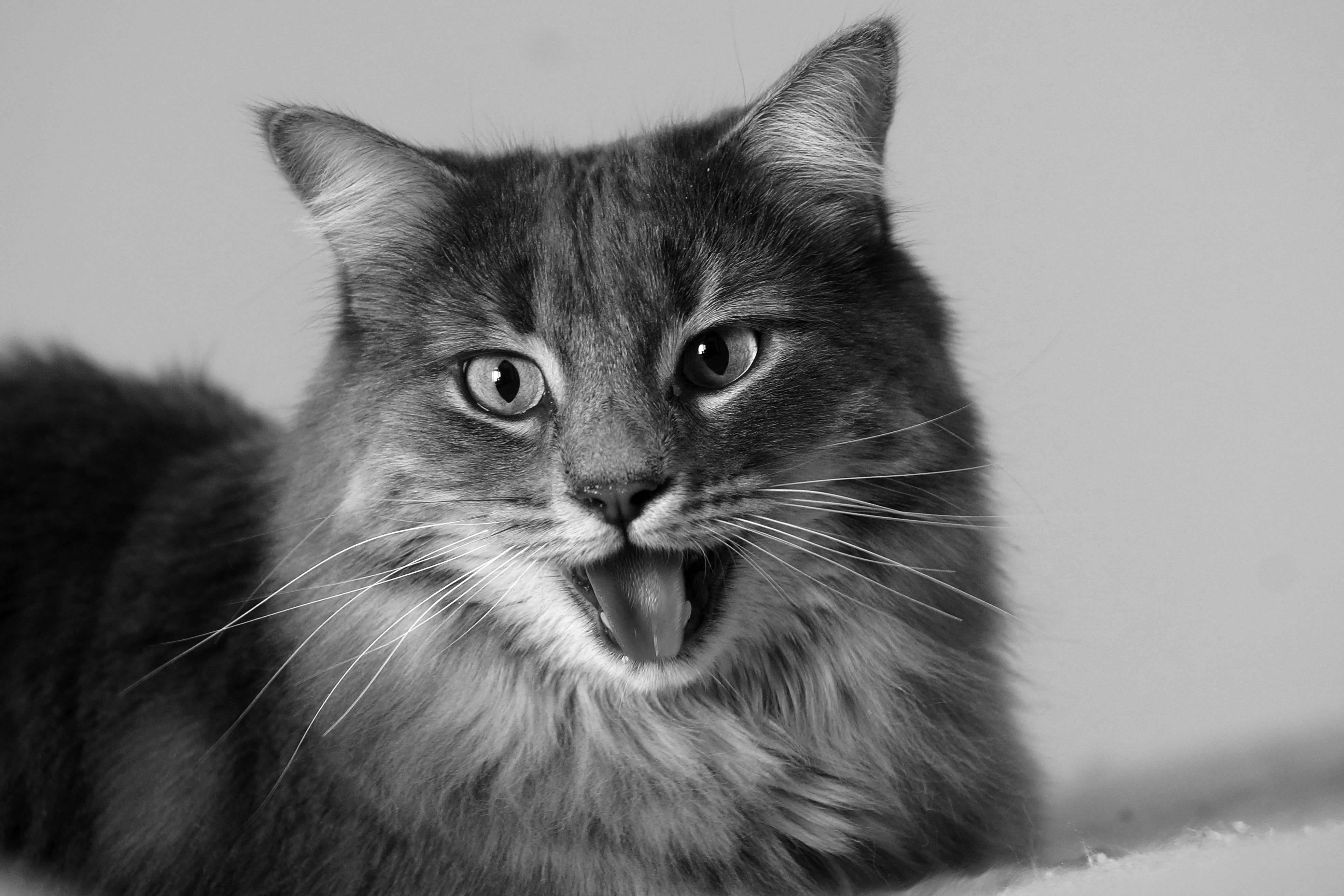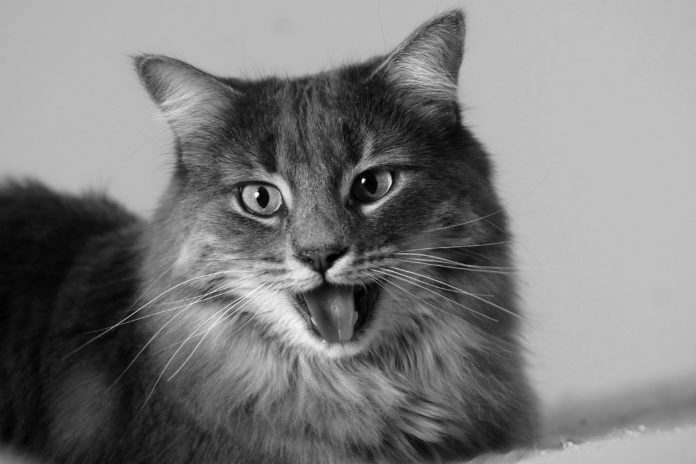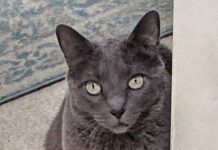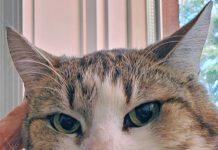Cats do not pant on a regular basis like dogs do. Feline panting can be either normal or due to underlying medical problems.
Non-medical causes of panting. If it is very hot and/or your cat has been exercising heavily, he may be panting just to cool down. This is not common, like it is with dogs, but it is not necessarily a cause for concern either. Your cat should stop panting once he has a chance to cool down.
© mario beauregard | AdobeStock

Cats may also pant due to stress. Consider any changes in your home or routine that may have caused your cat anxiety: moving, adding a new pet, different work schedule, or a party or reunion with lots of company. Give your cat some time to adjust, and make sure that he has places to get away from new pets or company if he doesn’t feel like socializing.
Medical causes of panting. Be suspicious of any panting that doesn’t have an obvious reason or that continues for an extended period of time. It may manifest as traditional open-mouth panting as seen in dogs, or look more like gasping or labored breathing. Abnormally fast breathing is also a cause for concern. Seek veterinary attention any time that your cat has difficulty breathing, as this can quickly turn into an emergency, depending on the cause.
Asthma: Feline asthma is the most common respiratory disorder in cats. Allergens that the cat inhales cause an immune response that, if excessive, restricts the cat’s airway and results in difficulty breathing. Potential allergens include dust, smoke, pollen, mold and mildew, and cleaning products. Asthmatic episodes usually have a sudden onset, and can range from occasional and mild, to frequent and severe.
Feline asthma is managed with corticosteroids to control the cat’s immune response to allergens and bronchodilators to open up the cat’s airways. These medications can be given a variety of ways, but the best method is through an inhaler. Inhalers allow the medications to get directly where they are needed.
Congestive heart failure: Congestive heart failure (CFH) is common in cats, often occurring as a consequence of a condition called hypertrophic cardiomyopathy. Hypertrophic cardiomyopathy, a condition in which the muscle of the heart’s ventricle thickens, is the most common heart disease in cats. This thickening prevents the ventricles from filling properly and makes pumping blood difficult. Over time, inadequate circulation can lead to congestion in the lungs, making breathing difficult.
Treatment for CHF varies, depending on the condition of the heart and the cat’s symptoms. Difficulty breathing does not guarantee that the cat is already in heart failure, but should be addressed quickly to keep the cat as healthy as possible and prevent further decline.
Tumors and foreign bodies: Panting and difficulty breathing can be caused by physical blockage of the cat’s airway. Foreign bodies may be lodged in the nasal passages, whereas tumors can occur anywhere along the respiratory tract between the nose and lungs.
The ideal treatment for a foreign body is to remove the offending item. Treatment for tumors varies, depending on the exact type and location of the tumor.
Bacterial / fungal infections: Certain bacterial and fungal infections can cause panting and difficulty breathing. Bacterial infections that develop in or spread to the thoracic cavity can cause inflammation fluid buildup, which can interfere with normal breathing. Fungal spores inhaled by a cat can result in fungal infections in the lungs that can similarly affect a cat’s ability to breathe. Diagnosis and treatment of these infections can vary, depending upon their location, severity, and the overall health of the cat.
Parasites:Heartworm is a parasitic worm transmitted by mosquitoes. Larvae mature within the cat’s circulatory system, causing inflammation in the blood vessels. Once adults, the worms reside in the pulmonary vessels that connect the heart and lungs, harming the cat both through inflammation and the obstruction of blood flow. Cats with heartworm disease can be easily mistaken for having feline asthma, because the two conditions have very similar symptoms. Feline heartworm can be treated, but ideally all cats that are exposed to mosquitoes should be on a regular heartworm preventative.
Another parasite that can affect a cat’s ability to breathe is lungworm. Cats can become infested with these worms by either drinking water contaminated with the larvae of these parasites or by eating prey (birds, rodents, snails) harboring lungworm larvae.
Viruses: Feline Immunodeficiency Virus (FIV) is a viral infection that attacks a cat’s immune system. This then makes the cat vulnerable to other infections that it otherwise could have resisted. Infection with various parasites or bacteria can then result in fluid buildup in and around the lungs, which in turn causes difficulty breathing. The best way to protect your cat is to keep him out of situations where he could be bitten by an infected cat (FIV is usually transmitted through bite wounds).
Feline Infectious Peritonitis (FIP) comes in both a wet and dry form. The wet form causes fluid to accumulate in a cat’s body cavities, and can make breathing difficult if fluid accumulates in the thoracic cavity.




